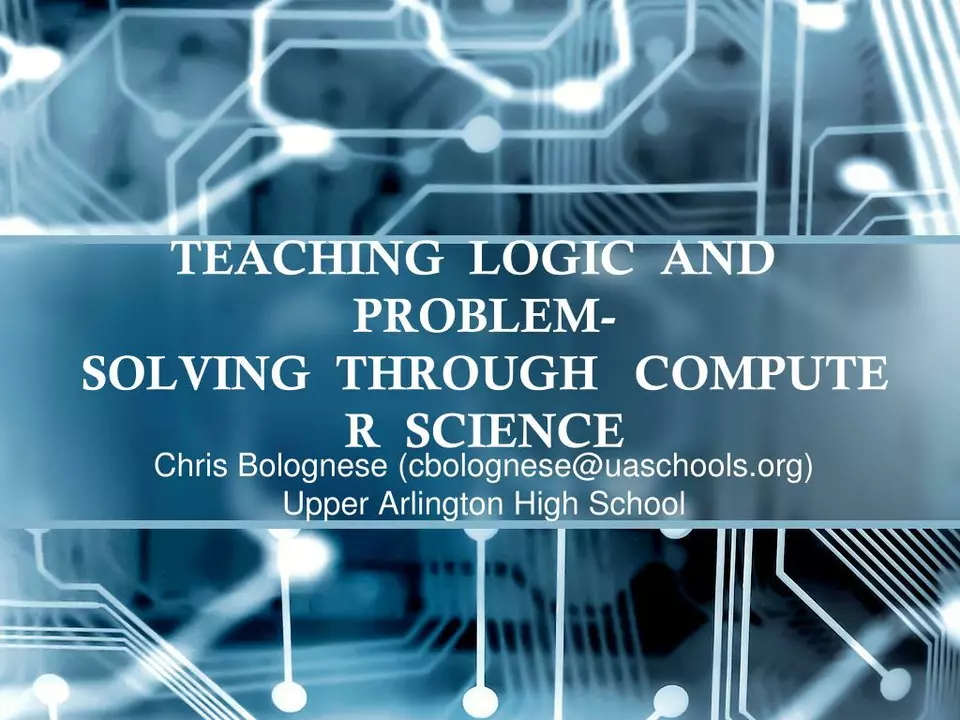Understanding Basic Science and Technology
Basic science and technology are the building blocks of modern civilization. They encompass a wide range of subjects, from biology and chemistry to physics and engineering. In this article, we'll delve into the core concepts of basic science and technology and explore how they are interrelated. We'll also discuss why it's essential to have a solid understanding of these fields, as well as how they can be applied to everyday life and contribute to the advancement of society.
The Foundations of Basic Science
Basic science refers to the study of the natural world and its underlying principles. This includes various fields such as biology, chemistry, physics, geology, and astronomy. Basic science seeks to answer fundamental questions about the nature of the universe, as well as to develop theories and models to explain observed phenomena. By understanding the fundamental principles of how things work, we can apply this knowledge to develop new technologies and improve existing ones.
One of the most famous examples of basic science is the development of the periodic table of elements by Dmitri Mendeleev. This table provided a systematic way to categorize and understand the properties of chemical elements, which later proved invaluable in the development of new materials and chemical reactions. Another example is Albert Einstein's theory of relativity, which has had numerous applications in modern technology, such as GPS systems and nuclear energy.
Exploring the World of Technology
Technology, on the other hand, refers to the practical application of scientific knowledge to create new devices, systems, and techniques that can be used to solve problems or improve existing processes. Examples of technology include computers, smartphones, transportation systems, and medical devices. Technology is constantly evolving and advancing, driven by the need to address new challenges and improve the quality of life for people around the world.
Technology often builds upon the discoveries made in basic science. For instance, the invention of the transistor, which is a fundamental component of modern electronics, was made possible by the understanding of quantum mechanics and solid-state physics. Similarly, the development of modern medicine and pharmaceuticals relies heavily on our understanding of biology and chemistry.
The Interconnectedness of Science and Technology
Science and technology are intrinsically linked, with each field continuously informing and influencing the other. Basic science provides the foundation for technological advancements, while new technologies often lead to new scientific discoveries. This symbiotic relationship drives the progress of both fields and, in turn, fuels the advancement of human civilization.
For example, the development of powerful telescopes allowed astronomers to observe distant celestial bodies, leading to a deeper understanding of the universe and the discovery of new phenomena such as black holes and exoplanets. Conversely, scientific theories like quantum mechanics have paved the way for groundbreaking technologies like semiconductors, which are at the heart of modern electronics.
The Importance of Basic Science and Technology Education
Having a strong foundation in basic science and technology is crucial for many reasons. First and foremost, it fosters a deeper understanding of the world around us and helps us make informed decisions about various aspects of our lives, from personal health to environmental conservation. Furthermore, basic science and technology education equips individuals with the skills and knowledge necessary to pursue careers in a wide range of fields, from healthcare and engineering to research and development.
Moreover, a well-rounded education in basic science and technology is essential for fostering a society of informed citizens who can participate in discussions and debates about the ethical, social, and environmental implications of new technologies and scientific discoveries. This is particularly important in the age of rapid technological advancements, where the pace of change is accelerating and the impact of new developments on society is becoming increasingly profound.
Applying Science and Technology in Everyday Life
Basic science and technology are not just abstract concepts confined to the realms of academia and research; they are also deeply ingrained in our everyday lives. From the moment we wake up to the time we go to bed, we are constantly surrounded by and interacting with the products and applications of science and technology.
Consider the smartphone in your pocket, which relies on a multitude of scientific principles and technological innovations to function, from the laws of electromagnetism that govern wireless communication to the chemistry that powers its battery. Or think about the weather forecast, which is made possible by advanced computer models based on a deep understanding of atmospheric science and meteorology.
The Role of Science and Technology in Society's Advancement
Throughout human history, science and technology have played a central role in shaping the course of civilization. From the invention of the wheel and the development of agriculture to the Industrial Revolution and the Information Age, scientific discoveries and technological innovations have driven social, economic, and cultural progress, enabling us to overcome countless challenges and improve our quality of life.
As we continue to push the boundaries of our understanding and capabilities, science and technology will remain at the forefront of human development. From harnessing renewable energy sources and combating climate change to curing diseases and exploring the far reaches of the cosmos, the potential applications of basic science and technology are virtually limitless.
Encouraging Innovation and Creativity
One of the most important aspects of basic science and technology is the spirit of innovation and creativity that they inspire. By fostering a sense of curiosity and wonder about the world, these fields encourage individuals to think critically, ask questions, and seek out new solutions to problems both big and small. This mindset is invaluable not only in scientific and technological pursuits but also in everyday life and across a wide range of disciplines.
By cultivating an appreciation for basic science and technology and the creative process that underlies them, we can inspire the next generation of innovators, inventors, and problem-solvers who will shape the future of our world.
Embracing the Future of Science and Technology
As we look towards the future, it is clear that basic science and technology will continue to play a pivotal role in shaping the trajectory of human civilization. From developing sustainable technologies that protect our environment to unlocking the secrets of the human genome and revolutionizing medical treatments, the possibilities are as vast as they are exciting.
By embracing basic science and technology, we can not only better understand the world around us but also harness our collective knowledge and ingenuity to create a brighter, more prosperous, and more equitable future for all.

